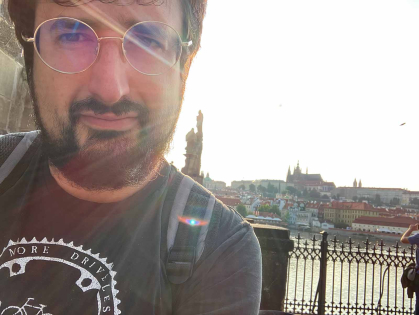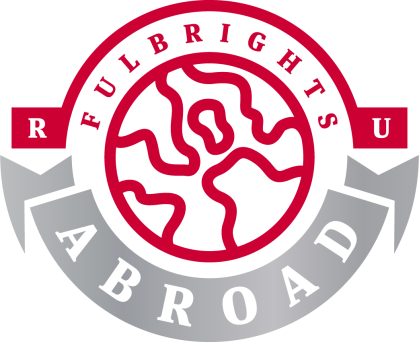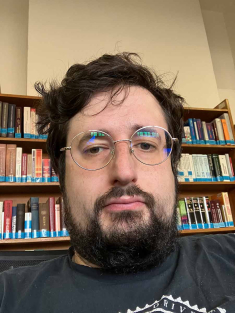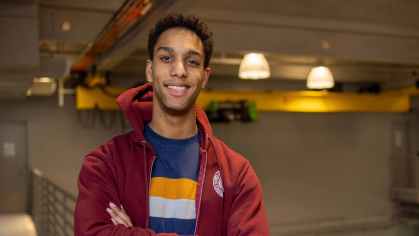In Pursuing His Doctoral Degree, Fulbright Scholar Embarks on Multicountry Trip in Europe
Ilya Slavutskiy, who attends the Rutgers School of Graduate Studies, is visiting libraries and archives in Amsterdam, Helsinki and Prague
Ilya Slavutskiy, a doctoral degree student at Rutgers University-New Brunswick who is focused on Ukraine in the post-Russian Empire revolutionary and civil war periods, has taken his research to Europe.

A recipient of a Fulbright-Hays Doctoral Dissertation Research Abroad fellowship, Slavutskiy is in Prague as part of a multicountry trip beginning in March and ending in December that includes stops in Helsinki and Amsterdam, visiting libraries and archives.
A resident of the Brooklyn borough of New York City, Slavutskiy received a bachelor of arts degree in German language and literature from Hunter College in New York and master degrees in history and library and information science from Queens College, City University of New York.
Slavutskiy, who attends the Rutgers School of Graduate Studies, discusses his research project and how stories from his father and grandfather sparked his interest in history.
What brought you to Rutgers?
A great fit from the perspective of my doctorate degree supervisor and the general culture of the Department of History.

What drew you to your field of study?
I've been interested in history, particularly of the Soviet Union but also Europe as a whole, since I was very, very little. The trigger may have been stories about the Cold War from my dad and about World War II from my grandpa.
What is your Fulbright study-abroad project?
I am doing research for my dissertation, which is on Ukrainian socialists and ideas about power during the revolutionary period in the former Russian Empire – from 1917 to 1920, roughly.
I am doing research in libraries and archives in Helsinki, Prague and Amsterdam, where many old documents, newspapers, brochures and books were deposited in different contexts by both authorities and exiles.
The collections are extremely rich, providing materials that are not held in the United States, and that allow me to still do my work despite the current extreme inadvisability of doing research in Ukraine and Russia.
What have you gained from your study-abroad experience?

Aside from gathering some amazing research materials, I've gained some real insights into local life, made friends and have been able to explore new sides of myself.
I've also delved into learning languages – Finnish, Czech, and, when I get there, Dutch – I never planned to learn, which has been fascinating. The opportunity to be in a new place for a long period of time is priceless.
How do you plan to apply what you’ve learned moving forward?
I certainly will tend to be more encouraging to others regarding study-abroad opportunities. You really never know what you can experience and learn, and being in an unfamiliar environment can bring out parts of you that might not have come out in your regular familiar environment.
As for the research, it will and already has been folded into the continuous dissertation writing I am doing.
What are your plans after studying abroad?
Continuing the writing of my dissertation and probably seeking opportunities to return to these countries in the future, both for continued research and because I have gained a strong affinity for them.
What are your interests?
Metal, fantasy, chess, dancing and languages.
Undergraduate and graduate students interested in applying for a Fulbright grant may contact the Rutgers-New Brunswick Office of Distinguished Fellowships or the School of Graduate Studies, respectively.


